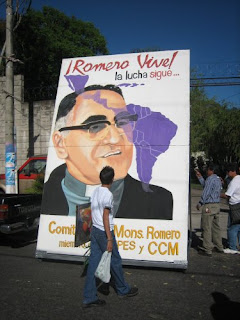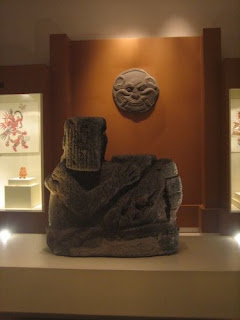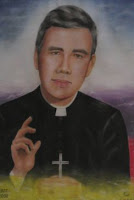The US Embassy in El Salvador
There is little doubt about the enormous influence which the United States has in El Salvador. Presidents of El Salvador have been regular visitors to the White House. The US is the largest exporter to El Salvador and is El Salvador's largest market. US-based franchises such as Pizza Hut, Sherwin Williams, Coca-Cola and Tony Roma appear in commercial districts. Television shows and movies made in the US dubbed into Spanish are on the airwaves and in the stalls of pirated DVD vendors. Salvadorans in the US, both documented and undocumented, send home more than $2 billion, representing one sixth of the Salvadoran economy. Salvadoran troops fight in the US war in Iraq. As a consequence, the activities of the US Embassy in El Salvador and its new Ambassador, Charles Glazer have tremendous significance in the country, both real and symbolic. And somewhat to my surprise, I've come to learn that some of the staff at the embassy are among the readers of this blog. So they told...




